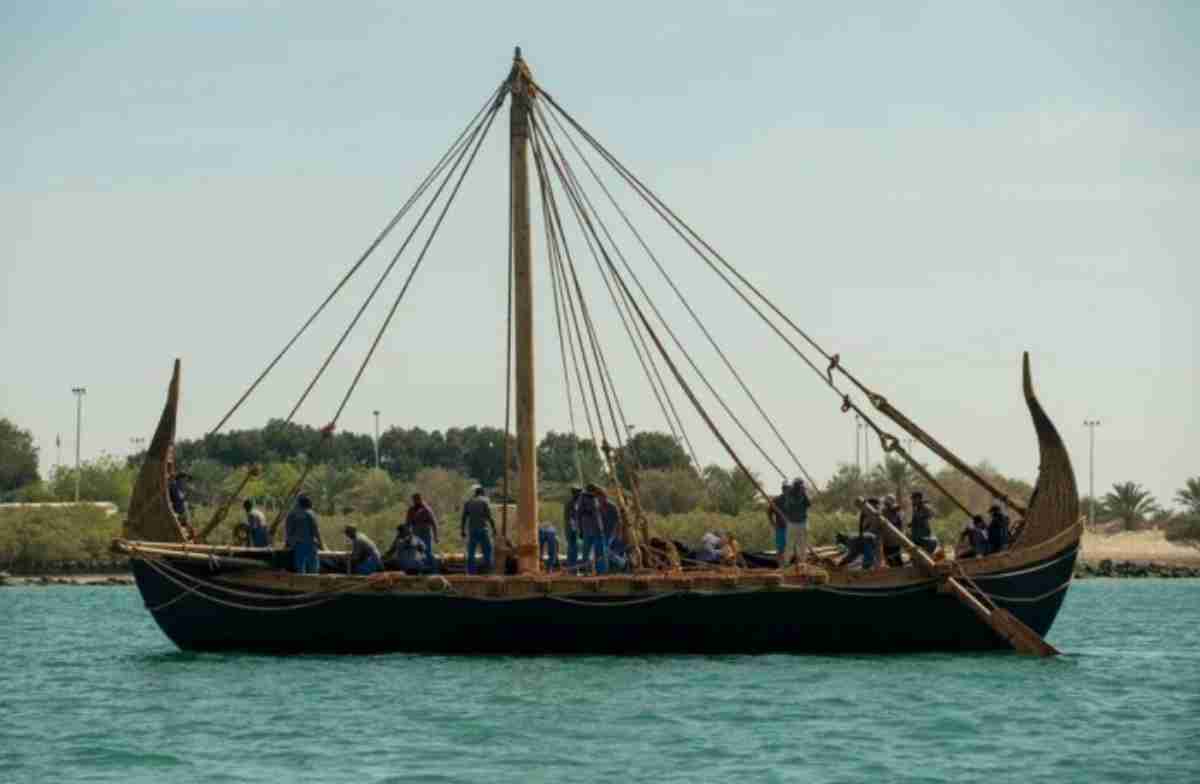
The replica of the Bronze Age boat was constructed using raw materials described on an ancient clay tablet and techniques dating back to 2100 B.C.
+ Video: The first Hungarian Air Force C-390 Millennium is already in the air
An 18-meter-long replica of an ancient trading vessel, known as the Magan boat, successfully sailed along the coast of Abu Dhabi. The reproduction was built using raw materials described on an ancient clay tablet and techniques that date back to 2100 B.C.
This experimental archaeology project was carried out through a partnership between the Zayed National Museum, Zayed University, and New York University Abu Dhabi (NYU Abu Dhabi) and aims to gain a deeper understanding of the rich maritime history of the United Arab Emirates and Bronze Age trade.
Experts in archaeology, anthropology, engineering, and science came together with shipbuilders specialized in historical replicas to design and construct the boat using raw materials and traditional hand tools.
The shape of the boat was based on ancient illustrations of vessels, and a naval engineer determined the ideal length, width, and depth to ensure it floated while carrying cargo and crew.
For the boat’s outer hull, 15 tons of locally sourced reeds were used, which were soaked, crushed, and tied into large bundles with ropes made from date palm fibers. Inside, the bundles were secured to wooden frames and coated with bitumen, a viscous liquid derived from crude oil and used as a waterproofing agent in ancient times.
In an interview with Newsweek, Peter Magee, director of the Zayed National Museum, spoke proudly about the project: “It is the culmination of years of research and collaboration with our partners, Zayed University and New York University Abu Dhabi, who will gain new insights into maritime navigation and ancient trade routes. It is a moment of great pride for us,” he said.
“We designed the boat using a combination of textual, iconographic, and archaeological evidence from the region; this includes an ancient clay tablet from Iraq with a large list of materials, likely used as a shopping list for an active shipyard.”
In its major test, the boat smoothly covered a distance of 50 nautical miles, about 92 km, in the Persian Gulf. A crew of over 20 people was needed to hoist the sail, made from goat hair, and the rigging, as pulleys did not exist in the Bronze Age.
Now, the replica is securely stored and is expected to be displayed in the museum in the future, where visitors can admire it up close.
This content was created with the help of AI and reviewed by the editorial team.

